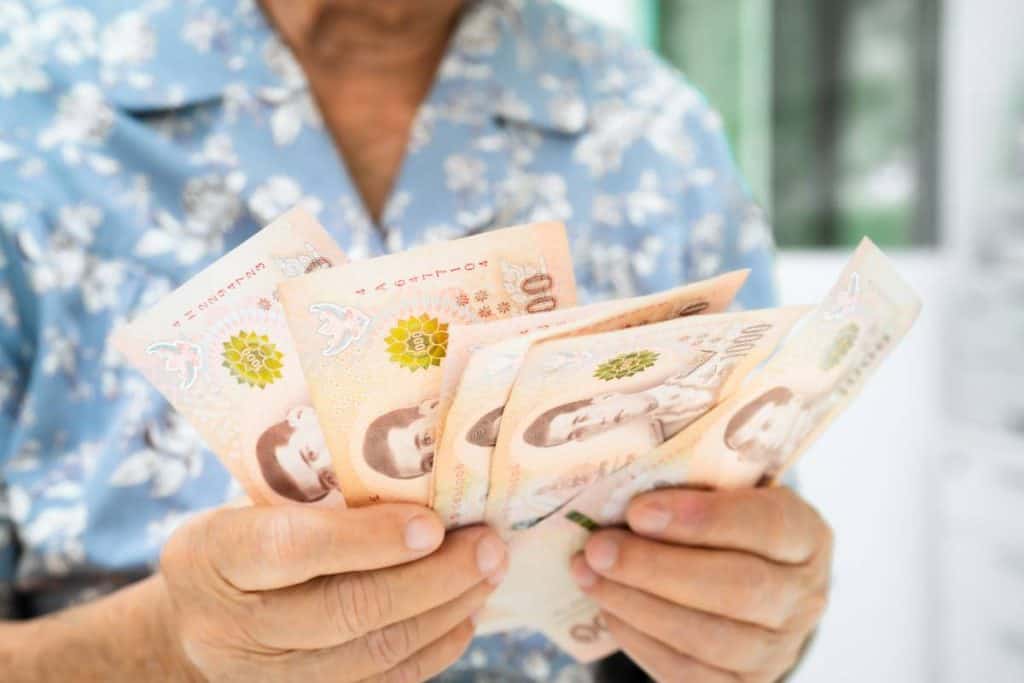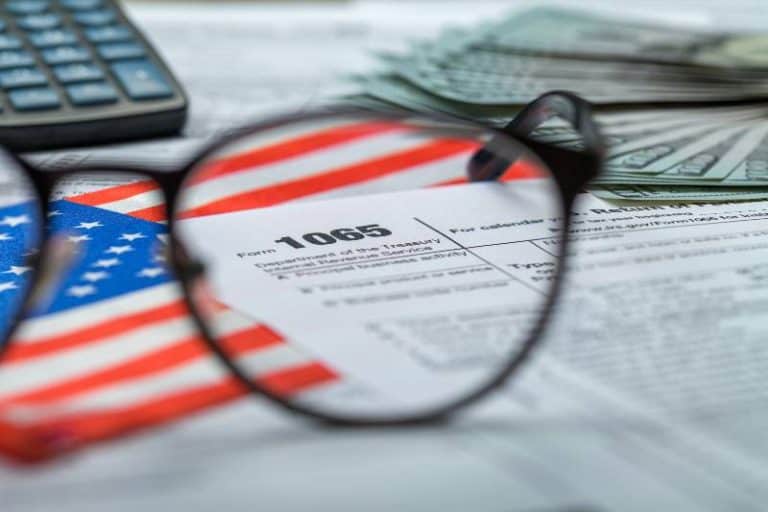Expats in Thailand: Best Banks For International Retirees
Having spent over three decades in the U.S. banking system before moving to Thailand again, I understand the anxiety that comes with managing your finances in a new country, especially when it comes to using a debit card. As the founder of BetterLivingAsia.com, I’ve helped countless international retirees navigate Thailand’s banking landscape. The good news? Thai banks have evolved significantly to accommodate expatriates, offering sophisticated banking services that rival their Western counterparts.
Key Takeaways
- Bangkok Bank and UOB lead as the most expat-friendly banks with extensive international networks
- Digital banking capabilities and English-language support are crucial factors for retiree banking success
- Understanding visa requirements and maintaining proper documentation streamlines the banking experience
Thailand’s Banking System Overview
The Thai banking sector, regulated by the Bank of Thailand, presents a robust framework that protects both local and foreign depositors, ensuring peace of mind for your financial planning. In my experience, understanding this system is crucial for making informed banking decisions, especially when considering annual percentage yield options.
Types of Financial Institutions:
- Commercial Banks
- Privately owned institutions
- Full-service banking capabilities
- International transfer services
- State-Owned Banks
- Government backing
- Limited international services
- Often more restrictive for foreigners
- Foreign Bank Branches
- Familiar Western banking practices
- Strong international networks
- Higher minimum balance requirements
Understanding Banking Requirements
Let’s talk about what you really need to know. After helping hundreds of retirees set up their banking, I’ve found that preparation is key. Here’s what you’ll need:
Essential Documentation:
- Valid passport
- Retirement visa (Non-Immigrant O-A)
- Proof of address (utility bill or lease agreement)
- Reference letter (helpful but not always required)
Top Banks for International Retirees
Bangkok Bank
Bangkok Bank emerges as a leading choice with its extensive branch network and senior-focused services, alongside offerings like direct deposit. Their dedicated “Senior Banking Program” includes priority counter service with minimal waiting times, higher interest rates for those over 60, and specialized staff who speak English fluently. The bank offers simplified documentation requirements for retirees and maintains a vast ATM network throughout Thailand. Their mobile banking platform features large-text options and an English interface, while their health coverage partnerships with major hospitals provide valuable discounts for senior account holders.
Kasikorn Bank (K-Bank)
K-Bank’s “Elder Care Package” stands out for its comprehensive approach to senior banking. They provide dedicated service counters with specially trained staff, higher daily withdrawal limits tailored for retiree needs, and integrated health insurance options. The bank’s green-themed digital interface is particularly user-friendly for seniors, featuring clear navigation and biometric login options. K-Bank also offers home banking services for seniors with mobility concerns and provides special rates on foreign currency exchanges for pension transfers.
Charles Schwab
For seniors maintaining strong ties to the US, Charles Schwab offers an unmatched international banking experience. Their High Yield Investor Checking Account provides unlimited ATM fee reimbursements worldwide, eliminating concerns about withdrawal costs in Thailand. They charge no foreign transaction fees and maintain competitive exchange rates. While a brokerage account is required, this can be advantageous for managing retirement investments alongside daily banking needs.
Capital One 360
Capital One 360 presents an excellent option for seniors who frequently travel between Thailand and their home country. The account features no monthly fees, no foreign transaction charges, and allows withdrawals of up to $1,000 daily at international ATMs. Their mobile app supports both Thai and English languages, and their customer service operates 24/7 with English-speaking representatives available.
SoFi
SoFi’s checking and savings account offers a modern approach for tech-savvy senior expats. Their account provides free ATM access through the Allpoint network, which has numerous locations in Thailand. The account features no foreign transaction fees and competitive interest rates. Their mobile app includes special accessibility features for seniors, and they offer unlimited reimbursement for ATM fees worldwide, making it one of the best checking accounts for retirees.
Revolut
As a digital banking platform, Revolut offers unique advantages for senior expats managing multiple currencies. Their account allows holders to hold and exchange multiple currencies at interbank rates, which is particularly useful for managing pensions and international investments. The platform provides real-time exchange rate notifications and offers a premium tier specifically designed for frequent international travelers, though it’s worth noting their physical banking presence is limited.
UOB Thailand
United Overseas Bank (UOB) Thailand offers a “Privilege Banking” service particularly suited for senior expats. Their account includes dedicated relationship managers who speak English, priority banking services, and preferential foreign exchange rates. They also provide comprehensive wealth management services and insurance products tailored for retirees, along with emergency medical assistance services.
SCB (Siam Commercial Bank)
SCB’s senior banking package includes priority service at branches, higher transaction limits, and specialized savings accounts with preferential rates for retirees. Their mobile banking app features a senior-friendly interface with larger text options and simplified navigation. The bank also offers wealth management services specifically designed for retirees managing international assets.
Tips for Choosing the Right Bank
Consider factors like proximity to your residence, English language support availability, international transfer fees, and integration with your existing accounts in your home country. It’s often beneficial to maintain accounts with both a local Thai bank and an international bank to maximize convenience and minimize fees. Remember to inquire about special senior privileges and health-related banking benefits, as these can provide significant value for long-term expat residents.
Alternative Banking Solutions
In today’s digital age, traditional banking isn’t your only option. I’ve seen many retirees successfully use a combination of services, including the best checking accounts and credit unions.
- Digital payment platforms (Wise, PayPal)
- Multi-currency accounts (Revolut, Wise)
- Local mobile payment systems (PromptPay)
Key Considerations
After years of assisting retirees, I’ve identified these crucial factors in financial planning:
Service Accessibility
| Feature | Importance | Why It Matters |
|---|---|---|
| ATM Network | High | Daily access to funds |
| Branch Location | Medium | Occasional services |
| Online Banking | Critical | Regular transactions |
| English Support | Essential | Clear communication |
Financial Considerations
When it comes to managing your money in Thailand, let me share some insights I’ve gained over the years. First and foremost, keep an eye on those monthly maintenance fees. They might seem small, but they can add up quickly. In my experience, most Thai banks charge between 100-200 THB per month for basic accounts, though these fees are often waived if you maintain a certain balance.
Speaking of international transfers, this is where you’ll want to pay particular attention. Each bank has its own fee structure, and it’s not just about the upfront costs. Exchange rates can vary significantly between banks, and some might have hidden fees tucked away in the fine print. I learned this the hard way when I first moved here! Bangkok Bank and UOB typically offer the most competitive rates for international transfers, especially if you’re moving larger sums like pension payments or investment returns.
Let’s talk about ATM withdrawal limits and fees. Most Thai banks set daily withdrawal limits between 20,000 to 50,000 THB for regular accounts. Here’s a pro tip I share with all my clients: consider opening an account with a bank that has a reciprocal agreement with your home country’s bank. This can save you a fortune in ATM fees. For instance, if you’re from the U.S., certain Thai banks have partnerships that allow reduced or zero ATM fees.
Minimum balance requirements are another crucial factor to consider. These can range anywhere from 2,000 THB at some local banks to 50,000 THB or more at international banks. However, don’t let higher minimum balances scare you off immediately. Often, these accounts come with better perks like free international transfers or premium banking services that could save you money in the long run.

Digital Banking Capabilities
The digital banking landscape in Thailand has transformed dramatically since I first arrived. Today, it’s a whole new world of convenience at your fingertips. Most major Thai banks have invested heavily in their digital infrastructure, and I’ve got to say, that some of their mobile apps rival or even surpass what I was used to in the States.
Take K-Plus from Kasikorn Bank, for example. It’s like having a bank branch in your pocket, but better. You can do everything from paying your electric bill to sending money to your family back home, all while lounging by the pool. The app even remembers your regular payments and suggests them automatically – pretty neat when you’re trying to keep track of multiple bills in a new country.
Security is another aspect that’s impressed me. Thai banks have embraced modern technology like biometric authentication – you can log in with your fingerprint or face ID, making it both secure and convenient. QR code payments have become ubiquitous; I use them for everything from street food to department store purchases. It’s actually easier than carrying cash or cards, particularly when using a debit card for your transactions.
Most banking apps here now offer bilingual support, switching seamlessly between Thai and English. This has been a game-changer for many of my retired clients who were initially worried about the language barrier. Even better, many banks have integrated bill payment services directly into their apps, so you can handle utilities, phone bills, and even government fees without leaving your home.
Emergency Banking Procedures
Let me share a story that really drives home the importance of understanding emergency banking procedures. One of our community members, John, lost his bank card during a weekend trip to Chiang Mai. What could have been a disaster turned into a minor inconvenience because he knew exactly who to call and what to do.
Most Thai banks offer 24/7 emergency hotlines with English-speaking staff. I always tell my clients to save these numbers in their phones immediately – it’s like having a financial lifeline in your pocket. Bangkok Bank and UOB are particularly good at handling emergencies for foreign clients, often able to issue temporary cards within hours at their main branches.
Account security is another area where Thai banks have really stepped up their game. I’ve been impressed by their fraud monitoring systems. Just last month, one of our retiree members got a call from his bank about a suspicious transaction – they caught it before it became an issue. This kind of proactive security gives real peace of mind, especially when you’re living abroad.
Banking Guide for Senior Expats in Thailand
Understanding Foreign Transaction Fees
As a senior expat in Thailand, managing international transactions wisely becomes crucial. Thai banks typically charge between 1-3% for international transactions, though some offer senior-specific packages with reduced rates. Bangkok Bank and Kasikorn Bank often provide special fee waivers for retirees, making them particularly attractive options for managing pension transfers and regular international transactions.
International Banking Options
The international banking landscape offers robust options for senior expats. Charles Schwab stands out with its unlimited ATM fee reimbursements worldwide and zero foreign transaction fees, making it ideal for accessing retirement funds. Capital One 360 complements this with no-fee withdrawals at select international ATMs and competitive exchange rates, while SoFi provides free ATM access through the Allpoint network without foreign transaction fees. Among local options, Bangkok Bank offers an extensive network and specialized senior services with English-speaking staff, and Kasikorn Bank provides comprehensive elderly care packages with priority service.
Digital Banking Benefits
Modern Thai banking has evolved to become remarkably senior-friendly. The major banks have invested heavily in accessible technology, offering large-text mobile interfaces and English language options throughout their platforms. These systems feature simplified transaction processes backed by 24/7 phone support in English. Security hasn’t been compromised for convenience, with biometric login options making access both safer and easier for senior customers.

Account Opening Process
Required Documentation
The account opening process requires thorough documentation including a valid retirement visa and passport with current stamps. You’ll need to provide proof of your Thai address and pension or income documentation. Most banks require two recent photos and recommend bringing foreign bank statements to facilitate the process. This documentation helps ensure compliance with both Thai banking regulations and international banking standards.
Practical Tips
For the smoothest experience, visit bank branches during morning hours when staff can provide more focused attention. Many banks have recognized the needs of their senior clients by offering home visits for account openings in certain areas, which proves particularly valuable for those with mobility concerns. This personalized service reflects the Thai banking sector’s commitment to accommodating senior expats.
Managing International Finances
ATM and Transaction Benefits
Modern banking in Thailand offers comprehensive transaction benefits, with many institutions providing free or reimbursed international ATM fees and higher daily withdrawal limits for seniors. These accounts typically feature competitive exchange rates and emergency cash services, ensuring secure and convenient access to funds whenever needed.
Security Features
Security remains paramount in Thai banking, with institutions implementing robust systems including biometric authentication and two-factor verification. Banks provide English-language fraud alerts and maintain 24/7 emergency support channels, ensuring senior expats can manage their accounts confidently and securely.
Additional Services for Seniors
Healthcare Integration
Thai banks have innovatively integrated healthcare services into their banking packages, offering hospital payment services and medical emergency funds. These comprehensive packages often include wellness program discounts and specialized health insurance packages for retirees, creating a seamless connection between financial and healthcare needs.
Estate Planning
The estate planning services offered by Thai banks are thorough and thoughtful, including will writing assistance and beneficiary designation support. Banks provide secure safe deposit boxes and comprehensive international estate planning support, ensuring that senior expats can manage their legacy planning effectively across borders.
FAQs
Can I open a Thai bank account with just a tourist visa?
From my experience helping hundreds of retirees, while it’s technically possible at some banks, you’ll have a much easier time with a retirement or long-term visa. I recommend waiting until you have your proper visa sorted out.
What are the typical minimum balance requirements?
This varies quite a bit. In my experience, local banks like Kasikorn might require as little as 2,000 THB, while international banks like UOB might ask for 50,000 THB or more. But remember what I always tell my clients – consider the overall package of services, not just the minimum balance.
Do Thai banks offer English-language mobile banking?
Absolutely! The banking apps have come a long way since I first moved here. Major banks like Bangkok Bank, Kasikorn, and UOB now offer fully functional English-language apps that make banking a breeze.
How do I set up automatic bill payments as an expat?
I just helped a client with this last week. Most banks make it pretty straightforward through their mobile apps. You’ll need your utility account details and proper ID. The bank staff can guide you through the process in English.
What’s the best way to transfer my pension to a Thai bank account?
Based on years of helping retirees manage their finances, I’ve found that international wire transfers through established banks like Bangkok Bank or UOB offer the most reliable solution. They might not always be the cheapest option, but the peace of mind is worth it. Plus, regular large transfers often qualify you for better exchange rates.
Conclusion
The Thai banking landscape offers robust options for international retirees, each with its own strengths. Whether you prioritize digital convenience with Kasikorn Bank, international services with Bangkok Bank, or premium banking with UOB, there’s a solution that fits your needs. The key is choosing a bank that aligns with your specific requirements for international transfers, daily banking needs, and customer service preferences.
As Thailand’s banking sector continues to evolve, staying informed about new services and opportunities becomes increasingly important. Through our years of experience helping expatriates navigate Thai banking, we’ve seen that successful banking relationships start with understanding both your needs and the available options.
If you need clarification about anything, make sure to contact us!






